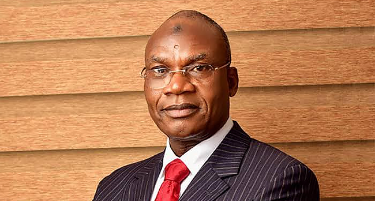The Federal Government has issued a directive stipulating that candidates under the age of 18 should not be granted admission to tertiary institutions. This announcement was made by the Minister of Education, Mr. Tahir Mamman, during the 2024 Policy Meeting of the Joint Admissions and Matriculation Board (JAMB) held in Abuja on Thursday.
The directive has sparked mixed reactions among the academic leaders present at the meeting, including vice-chancellors, rectors, and registrars of various institutions. While some see it as a necessary step to ensure that students are adequately prepared for the rigors of higher education, others express concerns about its implementation and the potential impact on young, high-achieving students.
In his address, Professor Mamman highlighted the growing trend of parents pressuring their underage children to seek early admission into tertiary institutions. He criticized this practice, noting that it often results in students entering university or other higher education settings without the necessary maturity and preparedness. This, he argued, can adversely affect their academic performance and overall well-being.
 Professor Mamman stated, “We have observed that many parents are pushing their underage wards to gain admission into tertiary institutions. This trend is troubling as it does not allow these young students the time to develop the emotional and intellectual maturity required to thrive in such an environment. The decision to set the minimum age for admission at 18 is aimed at ensuring that students are better prepared and can cope with the demands of tertiary education.”
Professor Mamman stated, “We have observed that many parents are pushing their underage wards to gain admission into tertiary institutions. This trend is troubling as it does not allow these young students the time to develop the emotional and intellectual maturity required to thrive in such an environment. The decision to set the minimum age for admission at 18 is aimed at ensuring that students are better prepared and can cope with the demands of tertiary education.”
To address concerns about students who may not immediately qualify for admission due to age restrictions, Professor Mamman assured that the Ministry of Education is implementing initiatives to bring skills education to pupils from primary school onwards. This initiative aims to equip younger students with practical skills and knowledge that will benefit them irrespective of their educational pathway.
“The Ministry of Education is committed to providing alternative pathways for students. For those who may not be able to gain immediate admission into tertiary institutions, we are introducing skill-based education programs starting from primary school. These programs will ensure that all students have access to valuable educational opportunities that prepare them for the future, whether they pursue higher education or vocational training,” he explained.
The directive has prompted a broader discussion about the age and readiness of students entering higher education. Some academic leaders argue that setting an age limit could help address issues of student welfare and academic success, while others worry it may disadvantage exceptionally talented young students who are ready for the challenge.
Dr. Adebayo Adeyemi, a vice-chancellor present at the meeting, expressed support for the policy, stating, “This directive will help ensure that students entering our institutions are not only academically prepared but also mature enough to handle the challenges they will face. It is a positive step towards improving the quality of education and student experience in our universities.”
Conversely, Dr. Grace Okonkwo, a registrar, raised concerns about the potential exclusion of gifted young students. “While the intention behind this directive is understandable, we must also consider the unique cases of exceptionally talented students who are ready for higher education despite their age. It is important to have flexibility in our policies to accommodate such students,” she remarked.
As the policy is implemented, the Federal Government and educational institutions will need to work together to ensure that it achieves its intended goals without inadvertently disadvantaging any group of students. This includes creating robust support systems and alternative educational pathways to cater to the diverse needs of the student population.
In conclusion, the Federal Government’s decision to set a minimum age of 18 for admission to tertiary institutions is a significant move aimed at addressing concerns about student readiness and well-being. While it has elicited varied responses from the academic community, the overarching goal is to enhance the quality of education and ensure that students are adequately prepared for the demands of higher education. The introduction of skills education programs from primary school is a promising initiative that will provide students with valuable skills and knowledge, ensuring they are well-equipped for their future endeavors.
FG Directs JAMB To Enforce 18 Years As Minimum Entry Age Into Tertiary Institutions




